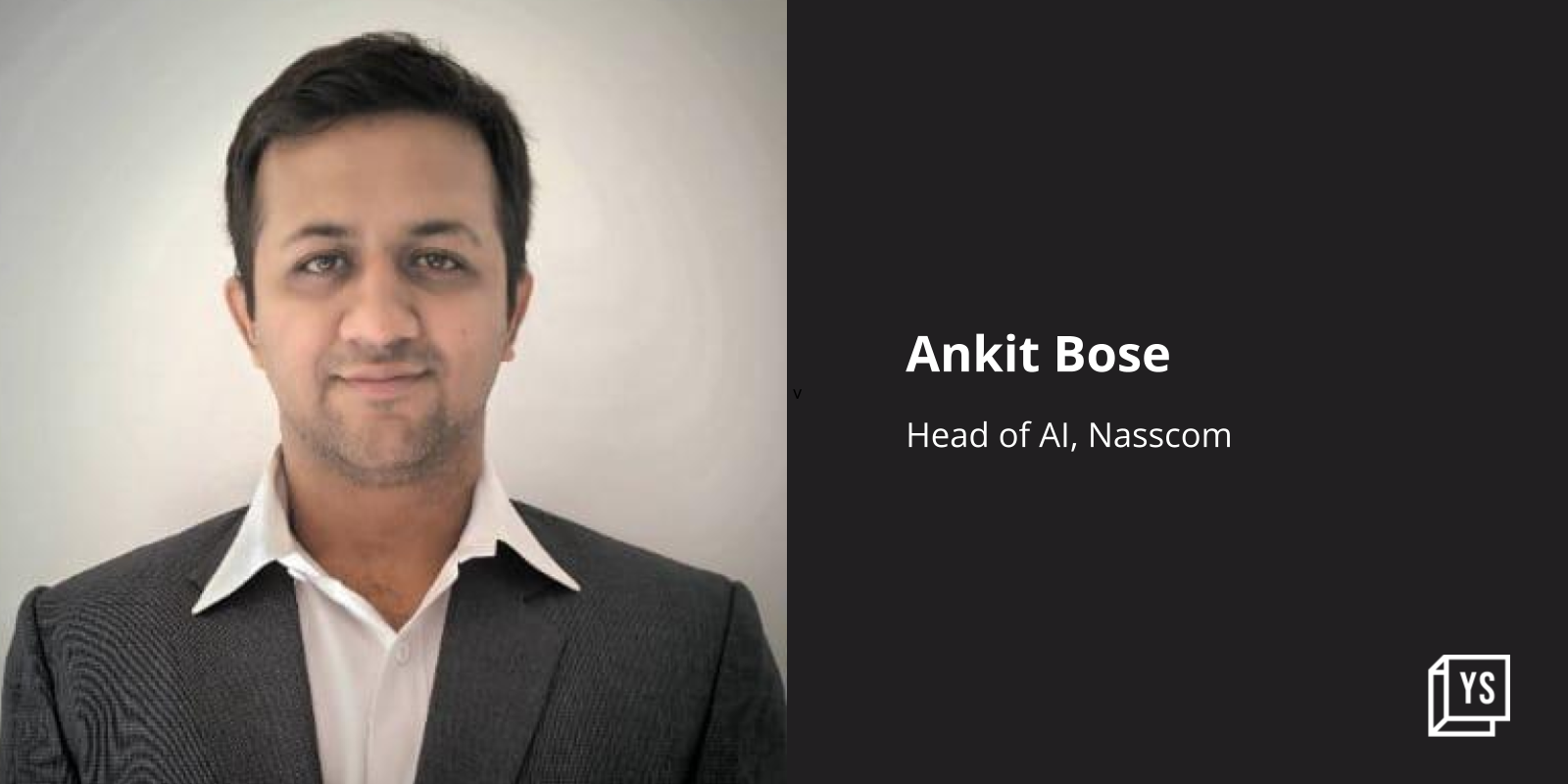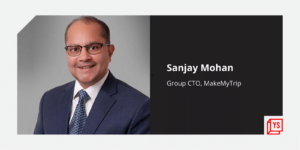
The buzziest of buzzwords, Generative Artificial Intelligence or GenAI is projected to be the ‘next big thing’ in the startup ecosystem. To capitalise on this new tech wave, the National Association of Software and Service Companies (Nasscom), which represents the technology industry in India, is setting up a GenAI foundry to help startups in this segment create successful products.
Nasscom’s GenAI foundry is expected to launch later this month.
The industry body believes that to make a meaningful impact, Indian GenAI startups require support at multiple levels.
“We are looking at how we can help these GenAI startups take their product from one stage to the next level and we will be providing them a lot of support,” Ankit Bose, Head of AI, Nasscom, tells YourStory.

.thumbnailWrapper
width:6.62rem !important;
.alsoReadTitleImage
min-width: 81px !important;
min-height: 81px !important;
.alsoReadMainTitleText
font-size: 14px !important;
line-height: 20px !important;
.alsoReadHeadText
font-size: 24px !important;
line-height: 20px !important;

According to Generative AI – startup landscape in India, a report by Nasscom, Indian GenAI startups raised over $475 million in funding between 2021 and May 2023.
India has around 60 such startups. NeuralGarage, for example, provides a solution that synchronises lip movement with audio using GenAI technology while Tarisa provides tools that allow financial institutions to easily build credit profiles of borrowers. Another GenAI startup. CodeMate uses the technology to accelerate code writing.
The report further noted there has been a 1.5X growth of GenAI startups in India between 2021 and 2023 and a 12X year-on-year increase in funding in 2022.
According to industry insiders, there is room for more growth.
“Being a nascent technology, big-ticket investments, particularly in native Indian foundational models and enterprise-grade applications services are yet to happen,” Sangeeta Gupta, Senior Vice-President and Chief of Strategy, Nasscom, says.
“In addition to limited investments, Generative AI startups in India also face the challenge of limited high quality and ready to use training datasets and lack of high performance compute capacity at scale,” she adds.
Behind the scenes
GenAI’s success depends on three pillars—chip manufacturers who provide the required computing power, cloud technology providers or hyperscalers, and lastly, the foundational technologies in what is called large language model (LLM), according to Bose.
India doesn’t have a significant presence in any of these segments. The country’s strength, however, lies in its vast talent pool and entrepreneurial energy, the Nasscom official remarked.
While the country doesn’t have many startups building foundational technology models, there are companies that are creating solutions or services based on available platforms, Rahul Chowdhri, Co-founder of Stellaris Venture Partners told YourStory in an earlier interview.
Several of Stellaris’ existing portfolio startups such as Whatfix, LimeChat, GTM Buddy, are leveraging GenAI platforms.
According to Bose, as part of this plan to set up GenAI foundry, Nasscom has signed a partnership with government bodies such as the Centre for Development of Advanced Computing (CDAC) which will provide free graphic processing unit (GPU) power for six months to chosen startups.
GPUs are the heart of any GenAI setup as they provide the massive computing power to run such operations.
GenAI foundry will also provide other resources such as data, access to the venture capital community and collaborations with global technology companies like AWS and Microsoft.
“The most important thing for the Indian GenAI startups is global market access and we are engaged with large enterprises to help them in this aspect,” Bose says.
For starters, the Nasscom team has identified around 100 GenAI startups in India and is looking at selecting around 20 such companies that can be part of its GenAI foundry initiative.
“There are numerous such startups who are doing deep work in various use cases and this number is growing fast,” he adds.
Enterprise engagement
Whether or not Indian GenAI startups find long-term success will likely be dependent on their ability to work with large technology enterprises as these companies have both a wide customer base and global market access.
“If the GenAI startups can solve it for India I think they can solve it for anywhere in the globe,” Bose says.
Things are falling into place for the GenAI startups in India and the ecosystem is slowly evolving. By unveiling a proposed deeptech startup policy earlier this month, the central government has also shown its support to GenAI startups. This policy, which is now open for public comments, aims to build the complete ecosystem around deeptech startups involving government, startups, VCs, and academia.

.thumbnailWrapper
width:6.62rem !important;
.alsoReadTitleImage
min-width: 81px !important;
min-height: 81px !important;
.alsoReadMainTitleText
font-size: 14px !important;
line-height: 20px !important;
.alsoReadHeadText
font-size: 24px !important;
line-height: 20px !important;

According to Bose, the GenAI startups in India will have to pay attention to five key areas to create an impact: focus on novel and niche use cases, build strong teams, develop enterprise-grade products, have a go-to-market strategy and leverage various government programmes.
At the same time, startups also use Gen AI responsibly. Nasscom has already released guidelines for the responsible use of AI where the ethics of deploying such technology is the primary concern. These guidelines were released in the month of June, 2023.
“If we (GenAI startups) have to leapfrog and showcase to the globe it has to have a responsible technology angle,” Bose says.
Edited by Affirunisa Kankudti







![Read more about the article [Funding alert] Paytm-backed Fable Fintech raises undisclosed amount in Series A round](https://blog.digitalsevaa.com/wp-content/uploads/2021/06/Imagegufr-1622723644647-300x150.jpg)
![Read more about the article [Funding alert] Wholsum Foods raises $7M to expand millet-based offerings](https://blog.digitalsevaa.com/wp-content/uploads/2022/02/wholsum-1645536741899-300x150.jpeg)

